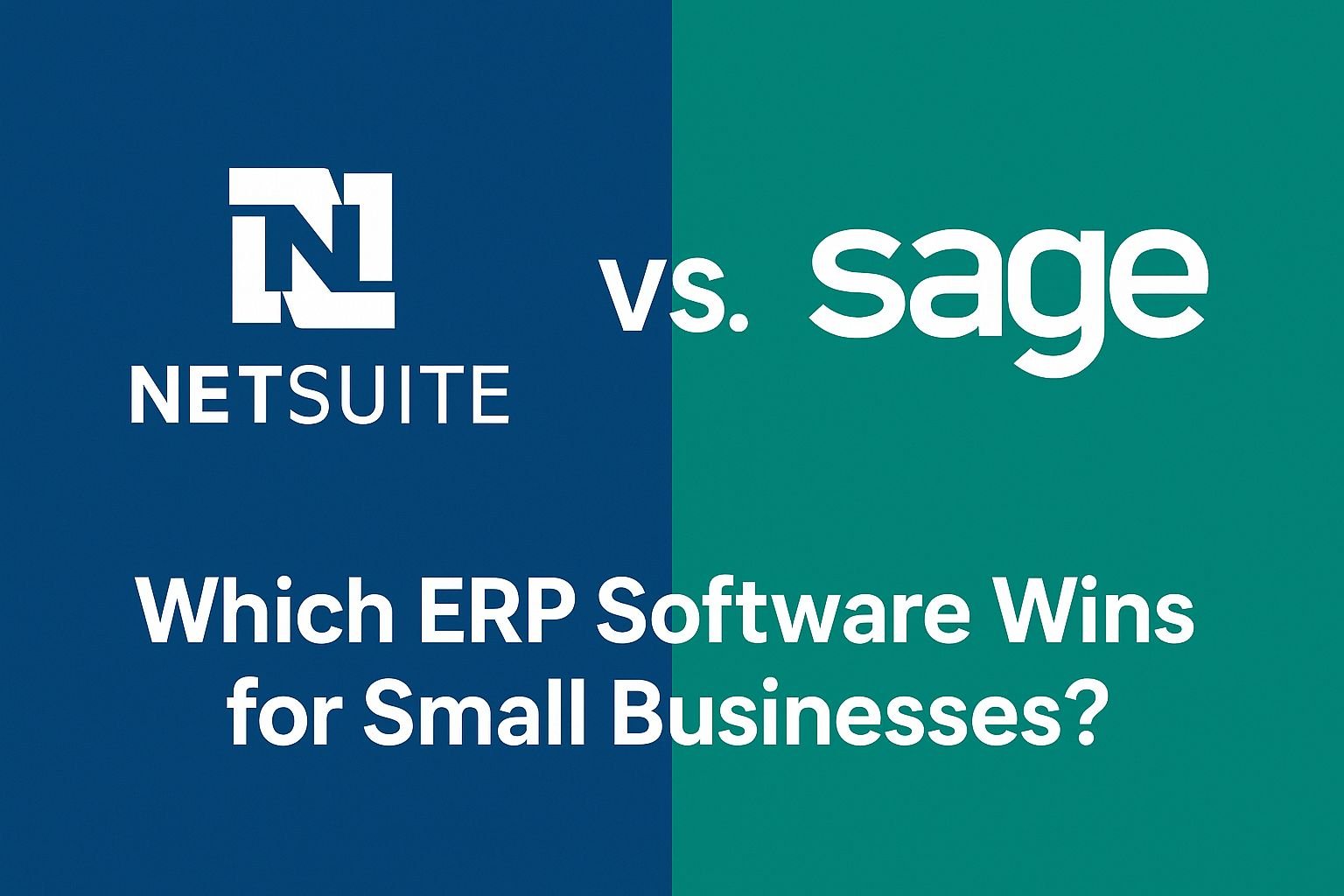Choosing the right Enterprise Resource Planning (ERP) software is a game-changer for small businesses aiming to streamline operations, boost efficiency, and scale seamlessly. Two industry giants, NetSuite and Sage, often dominate the conversation when it comes to ERP solutions. Both platforms offer powerful tools to manage finances, inventory, and operations, but which one is the best fit for small businesses? In this in-depth comparison, we’ll break down the key features, benefits, and limitations of NetSuite vs. Sage ERP to help you make an informed decision for your business’s growth.
What is ERP and Why Does It Matter for Small Businesses?
An ERP system integrates core business processes accounting, inventory management, customer relationship management (CRM), and more into a single platform. For small businesses, this means less time juggling multiple tools, fewer errors, and better insights for decision-making.
Overview of NetSuite ERP
NetSuite, owned by Oracle, is a cloud-based ERP platform designed for businesses of all sizes. Known for its comprehensive suite of tools, it covers financial management, CRM, inventory, e-commerce, and more.
Key Features of NetSuite
- Financial Management: Robust tools for accounting, budgeting, and revenue recognition.
- Scalability: Supports multi-entity operations and global expansion.
- Integrated Suite: Includes CRM, inventory, and e-commerce.
- Real-Time Analytics: Customizable dashboards for insights.
- Cloud-Based: Access from anywhere with automatic updates.
Pros of NetSuite
- Comprehensive all-in-one solution.
- Highly customizable.
- Strong integration with third-party apps.
- Ideal for businesses planning rapid growth or global operations.
Cons of NetSuite
- Higher cost.
- Steeper learning curve.
- Longer implementation for complex setups.
Overview of Sage ERP
Sage ERP, including Sage Intacct and Sage X3, is a cloud-based solution for small to mid-sized businesses, with a focus on financial management and ease of use.
Key Features of Sage
- Advanced accounting and financial reporting.
- Customizable dashboards.
- Integration with Salesforce, Expensify, and others.
- Cloud-based with industry-specific solutions.
Pros of Sage
- Best-in-class accounting tools.
- More affordable than NetSuite.
- User-friendly interface.
- Flexible integration capabilities.
Cons of Sage
- Fewer non-financial modules.
- Less support for global operations.
- May require third-party tools for CRM or inventory.
NetSuite vs. Sage: Head-to-Head Comparison
| Feature / Criteria | NetSuite | Sage ERP (Intacct/X3) |
|---|---|---|
| Core Focus | All-in-one ERP (financials, CRM, inventory, e-commerce) | Advanced financial management |
| Scalability | Highly scalable; supports global operations with multi-entity, currency, etc. | Scalable to mid-sized level; limited global support |
| Ease of Use | Powerful but complex; steeper learning curve | User-friendly; easier to adopt |
| Cost | Higher initial cost; better long-term value for growth | More affordable; cost-effective for small, finance-driven teams |
| Financial Management | Robust, integrated with other modules | Best-in-class accounting and reporting features |
| CRM & Inventory | Built-in CRM, inventory, and e-commerce tools | Requires integrations or separate tools |
| Industry Fit | Best for tech, retail, e-commerce, global firms | Strong in finance, distribution, and professional services |
| Integrations | Native integrations + strong ecosystem | Strong third-party integrations for finance tools |
| Customer Support | 24/7 global support backed by Oracle | Standard support; premium tiers may cost more |
| Deployment | Cloud-native | Cloud-based |
Which ERP is Right for Your Small Business?
- Choose NetSuite if: You need a comprehensive, scalable solution with built-in CRM, inventory, and global capabilities.
- Choose Sage if: Your focus is robust financials, lower cost, and ease of use without needing a full suite.
Tips for Choosing the Right ERP
- Assess Your Needs
- Consider Scalability
- Evaluate Budget
- Test Usability
- Partner with Experts
Conclusion
Both NetSuite and Sage ERP offer strong features for small businesses, each excelling in different areas. NetSuite is best for all-in-one scalability, while Sage is ideal for finance-driven teams. Carefully evaluate your business goals to select the ERP that supports your growth.
Ready to take the next step? Explore demos of NetSuite or Sage ERP and find the perfect fit for your business today!

